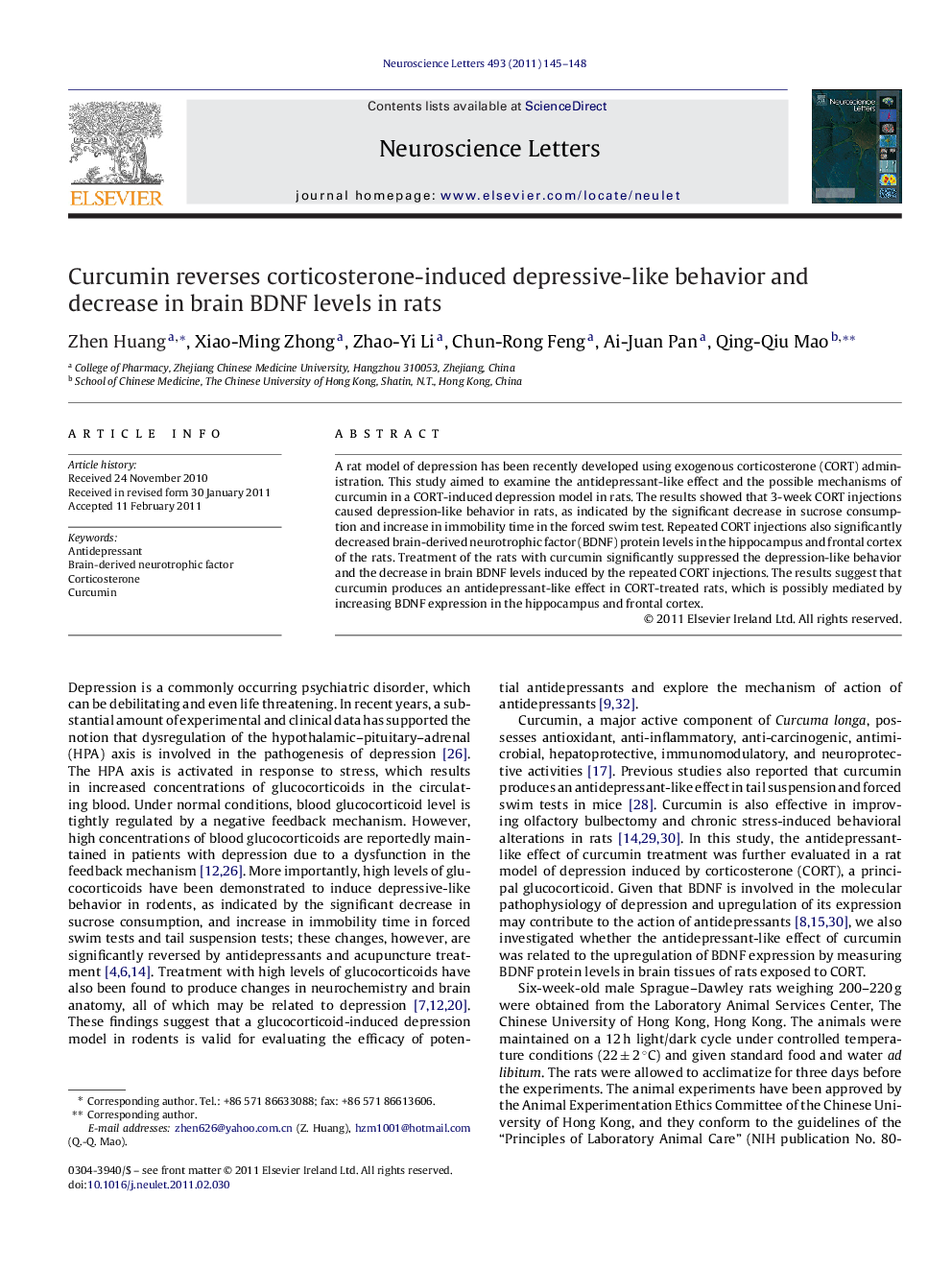| Article ID | Journal | Published Year | Pages | File Type |
|---|---|---|---|---|
| 4345317 | Neuroscience Letters | 2011 | 4 Pages |
A rat model of depression has been recently developed using exogenous corticosterone (CORT) administration. This study aimed to examine the antidepressant-like effect and the possible mechanisms of curcumin in a CORT-induced depression model in rats. The results showed that 3-week CORT injections caused depression-like behavior in rats, as indicated by the significant decrease in sucrose consumption and increase in immobility time in the forced swim test. Repeated CORT injections also significantly decreased brain-derived neurotrophic factor (BDNF) protein levels in the hippocampus and frontal cortex of the rats. Treatment of the rats with curcumin significantly suppressed the depression-like behavior and the decrease in brain BDNF levels induced by the repeated CORT injections. The results suggest that curcumin produces an antidepressant-like effect in CORT-treated rats, which is possibly mediated by increasing BDNF expression in the hippocampus and frontal cortex.
Research highlights► A rat model of depression has been developed by exogenous CORT administration. ► Curcumin reverses depressive-like behavior in CORT-treated rats. ► Curcumin increases BDNF protein levels in the hippocampus and frontal cortex of CORT-treated rats.
